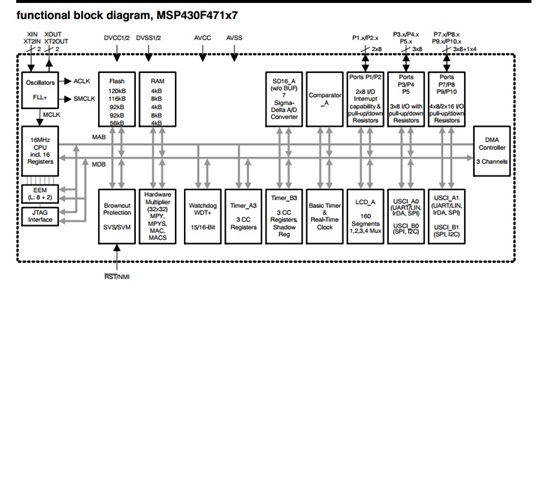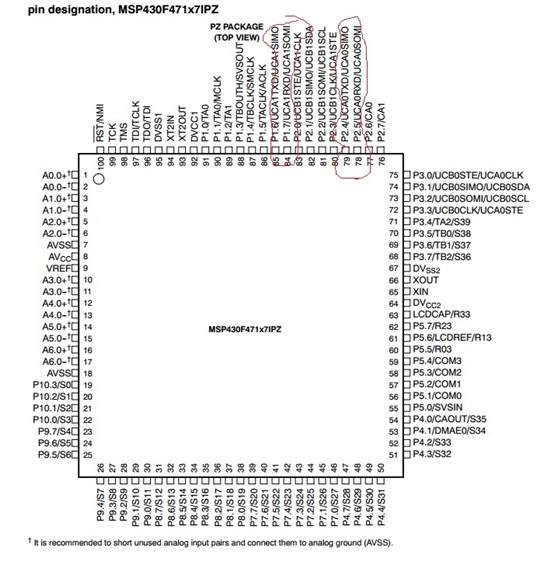I use MSP430f47197 and according to its datasheet I have only two hardware UARTs if I am not mistaken! But I need three! Is there any way to get around this problem? Can I write a code without using UART ports let's say using P5.5 and P5.6?
http://www.ti.com/lit/ds/symlink/msp430f47196.pdf



